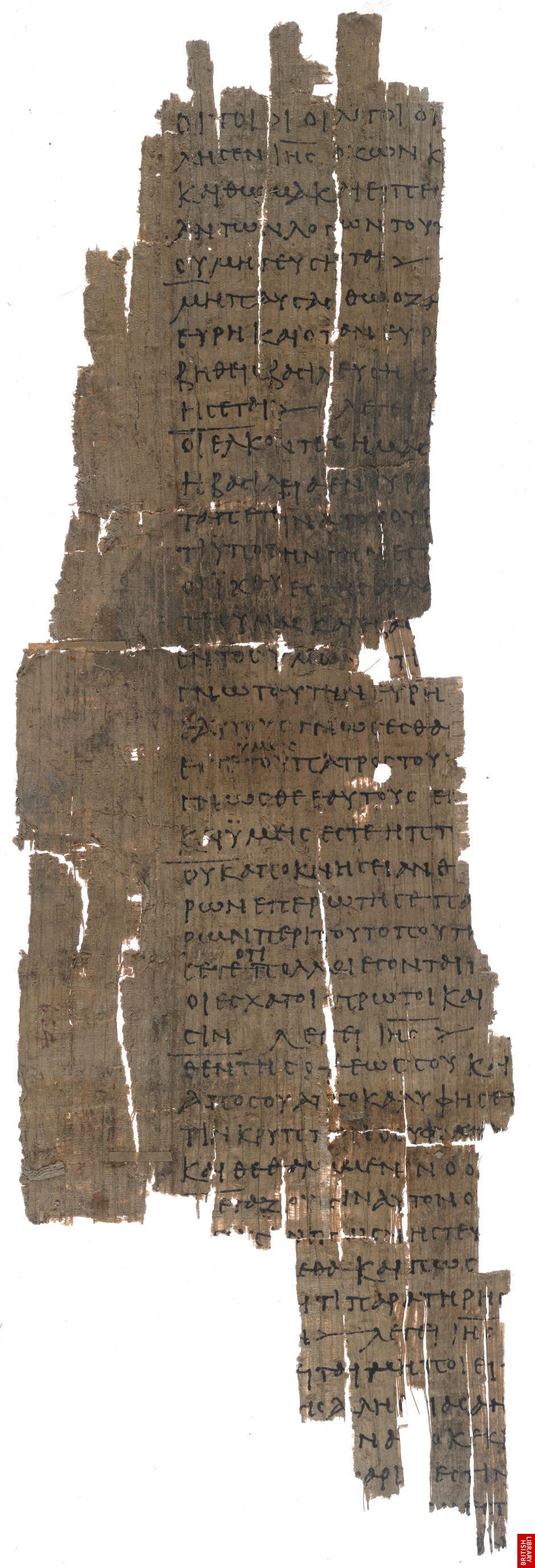This fragment preserves the beginning of a collection of Christ’s sayings, known as the Gospel of Thomas, in the original Greek. A full Coptic version of Thomas’s Gospel was discovered at Nag Hammadi, Egypt, in 1945-46, and this alerted scholars to the identity of the above fragment, uncovered earlier. Although the Coptic version is not identical, it is believed to be a translation of the Greek version.
Unlike the canonical (that is, ‘official’) Gospels, the Gospel of Thomas does not relate events in Jesus’s life, but comprises a collection of 114 sayings of Jesus, perhaps as the first attempt at recording part of an oral tradition. Some of these sayings are close to those found in the canonical Gospels, while others are different or obscure. A striking feature of Thomas’s Gospel is that it makes no mention of the resurrection.
The opening words, as reconstructed from the above fragment, are ‘These are the secret sayings which Jesus the Living spoke and Didymus Judas Thomas wrote’. Each saying is marked by a paragraphus (horizontal line). These sayings are associated with the Gnostic sects who believed that salvation could be attained by gnosis or knowledge.
Oxyrhynchus was a prominent town in Egypt until the seventh century, when the canal that fed it fell into disrepair. Its inhabitants had buried their rubbish in a series of desert sites outside the city, and this included vast amounts of waste documents – mainly mundane items such as accounts or bureaucratic ‘paperwork’, but also old literary and artistic texts. Not being on a river and therefore not on a flood-plain, the disused dumps stayed dry and protected by sand for centuries.
In 1896 two young researchers from Oxford, Bernard Grenfell and Arthur Hunt, were assigned to excavate what was expected to be an unpromising site. To their astonishment they found a treasure-trove of ancient texts and fragments, and the site has been continuously excavated ever since.
Oxyrhynchus has yielded an enormous number of documents. Most, precisely because of their routine nature, cast fascinating light on everyday life. But there are also many pieces of inestimable academic and research worth, such as the fragment here.
